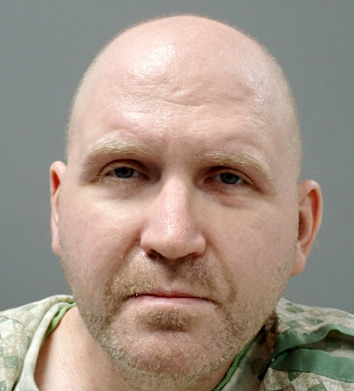HARTINGTON – Who can write victim impact statements and what those statements should contain was the focus of the latest hearing in the case of a Laurel man convicted of murdering four people as his case enters the sentencing phase.
Jason Jones’ lawyer, Todd Lancaster of the Nebraska Commission on Public Advocacy, argued for limitations to be placed on victim impact statements and to include only the children of Gene and Janet Twiford, and the closest family member to Michele Ebeling. The Twifords, their daughter, Dana, and Ebeling were all shot by Jones and their homes set ablaze in Laurel in August 2022.
Jones, 44, was convicted in a jury trial last month in Dakota County. The jury found the crimes to be aggravated, making Jones eligible for the death penalty.
In previous cases he’s litigated, Lancaster said the court has received 20 impact letters with perhaps only a few from actual family members.
“The rest are from distant relatives, family, friends, people that knew the victim but had not seen them for years, just random people,” he said. “Those people shouldn’t be considered victims.”
Lancaster also asked that victim impact statements make no comments about the nature of the crime, Jones’ character or opinion on sentencing.
Sandra Allen of the Nebraska Attorney General’s Office said it’s difficult to limit victim’s statements.
“When you’re trying to describe what they’re going through at this point in time, thinking about their loved ones dying at the hands of Mr. Jones, stating ‘I can’t imagine what was going through my mom’s mind when he’s standing there and shot her in this heinous manner,’ for instance,” she said. “It’s difficult and to some extent it gets a bit subjective.”
She brought up another case in which the Attorney General’s Office was tasked with trying to redact victim impact statements to fit certain guidelines. Allen asked Judge Bryan Meismer for some leeway in the matter.
“We can certainly explain to the family the limitations on what they should put in there,” Allen said. “But if something sneaks in there that the court or Mr. Lancaster doesn’t think should be in there, I don’t think that should be a preclusion to that impact statement being admitted . . . or that the court can’t consider that and with its discretion determine what should be excluded as far as sentencing goes.”
Meismer will submit a written ruling after he reviews a 2024 case cited in arguments.
However, he said he’s inclined to limit oral victim statements at sentencing and tends to be more lenient with written statements.
“I want to give the victim’s families the opportunity to say their piece, and the court uses its discretion as to what’s its going to pay attention to and not pay attention to,” he said.
When he makes his written ruling, Meismer will provide victim impact statement guidelines.
Lancaster said he plans to renew his motion on the constitutionality of the death penalty and submit some additional evidence. Another hearing will be set on that matter.
Meismer indicated a trial transcript won’t be available for about six months. The transcript will be reviewed by the three-judge sentencing panel in the case made up of Meimser, Patrick Heng, McCook, and Timothy Burns, Omaha.
The panel will also hear evidence of mitigating circumstances, or factors that lessens the severity of the crime or Jones’ culpability. Under state law, mitigating circumstances may include the defendant’s lack of criminal history; if there was unusual pressure or influence by another person; if the crime was committed during extreme mental or emotional disturbance; the age of the defendant; if the defendant’s participation in the crime was minimal; if the victim consented or participated in the crime; and if the defendant was impaired by mental illness or intoxication.
Once the panel hears that evidence, it then convenes in private to weigh whether the mitigators exceed or come close to the weight of the aggravators found by the jury in the case.
The decision must be unanimous in order for the death sentence to be imposed.
If Jones is given a death sentence, an appeal is automatic and goes directly to the Nebraska Supreme Court, bypassing the Nebraska Court of Appeals.

Jason Jones
.jpg)










